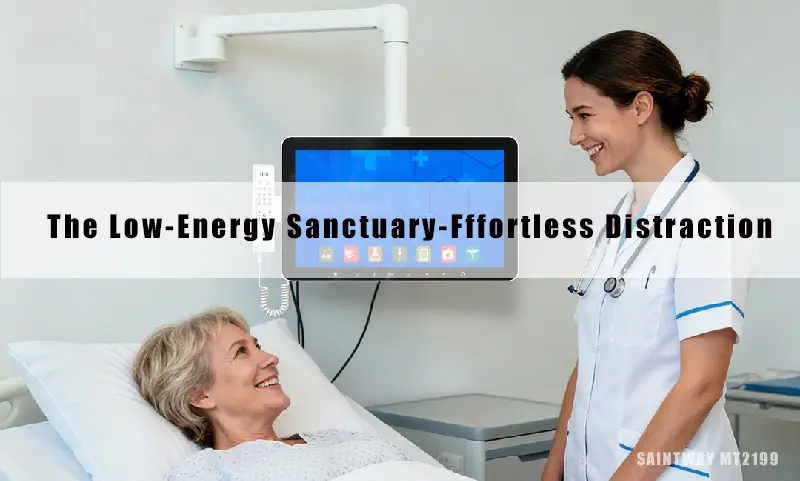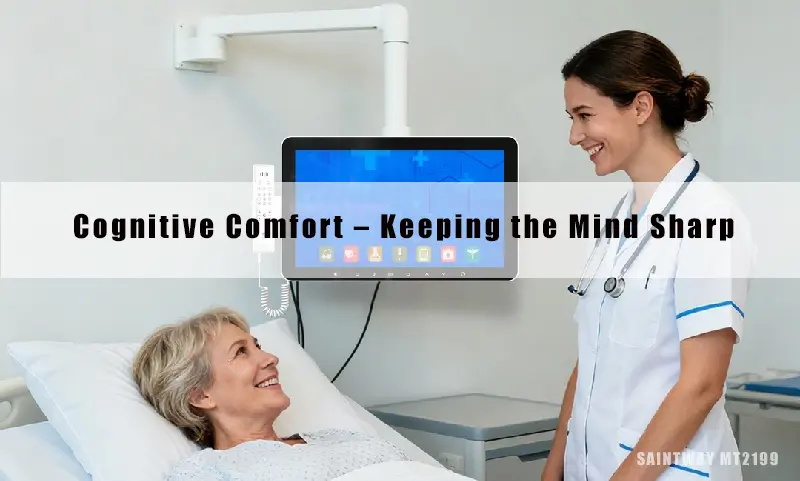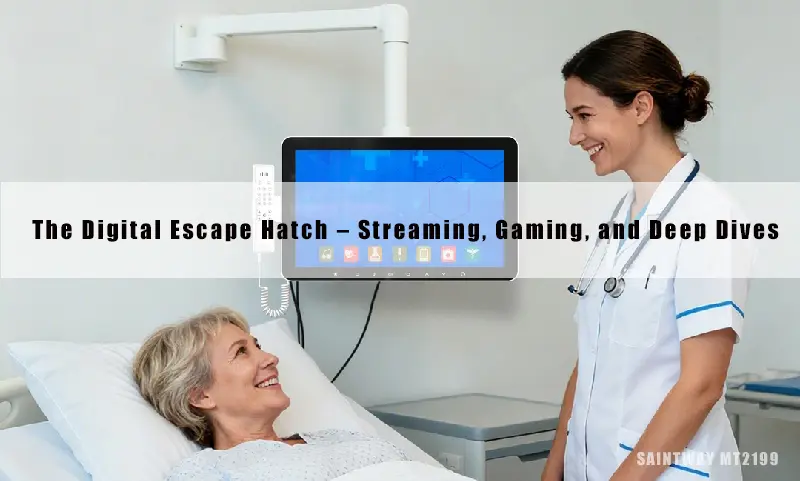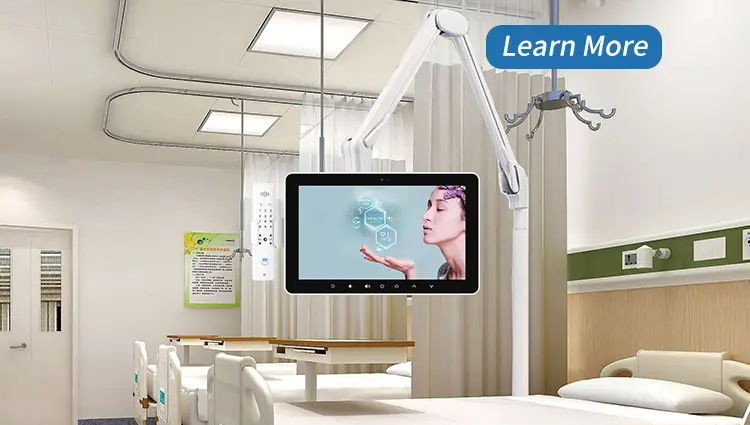We all know the script: you’re sick, you need care, and the hospital is undoubtedly the best place to be. You’re surrounded by professionals dedicated to your recovery, and for that, we are eternally grateful. But once the immediate crisis is over and the true work of healing begins, the one thing no one truly prepares you for is the sheer, overwhelming, monotonous boredom that sets in.
Days melt into an endless blur of vital sign checks, meal trays, and the unforgiving cycle of daytime soap operas playing softly down the hall.
When you’re a patient, entertainment isn’t just a way to kill time; it’s a form of vital, often overlooked, therapy. It’s your mental escape route, a crucial factor in managing anxiety, reducing perceived pain, and ultimately, speeding up your recovery. Studies consistently show that a positive, engaged mental state can profoundly impact physical healing, acting as a crucial complement to medical treatment.
This guide isn’t just a basic checklist. We’re going to approach bedside entertainment through the crucial lens of Energy Level, helping you find the perfect activity whether you’re recovering from surgery and can barely lift your head, or you’re undergoing a long-term treatment and need a deeper cognitive challenge. Let’s reclaim your time and transform your hospital stay from a draining waiting game into a personal retreat.

The Low-Energy Sanctuary – Effortless Distraction
When you are acutely ill, immediately post-operative, or dealing with fatigue, the idea of reading a dense book or playing a complex game feels exhausting. This is when your goal is minimal effort and maximum distraction. These activities require almost no physical movement or intense focus.
1. Audiobooks and Podcasts: The Ultimate Passive Escape
This is arguably the single best form of entertainment for a hospital stay, and it consistently tops the list for easy ways to pass time while in a hospital bed. Why? Because it requires only your ears.
- For Acute Fatigue: Choose familiar, comforting genres. A classic novel you’ve always meant to ‘read,’ a lighthearted biography, or even a nostalgic favorite.
- For Gentle Learning: Podcasts are fantastic for short, digestible intellectual stimulation. Look for narrative journalism, history, or science shows. The conversational nature is gentle on the mind.
- Pro Tip: Many public libraries now offer free access to vast audiobook catalogs through apps like Libby. Download a queue before you even check in! This saves money and bandwidth.
2. Music Therapy: Curating Your Sonic Mood
Music has proven therapeutic effects on reducing anxiety and blood pressure. However, your usual high-energy gym playlist might be counterproductive here.
- Ambient Soundscapes: Look for calming, instrumental music—nature sounds, classical guitar, or even cinematic scores without dialogue.
- Nostalgia Trip: Create a playlist of songs from your teenage years or a happy period in your life. Music linked to positive memories is a powerful tool against hospital boredom remedies.

Cognitive Comfort – Keeping the Mind Sharp
As your energy slowly returns, your mind starts craving a gentle workout. These activities keep your brain engaged, fight the “fog” of illness, and provide a sense of accomplishment without inducing strain. This is key for how to maintain cognitive function during illness.
1. Digital Puzzles and Brain Games
Avoid fast-paced, high-stress video games. Instead, focus on low-pressure, turn-based digital activities:
- Sudoku, Crosswords, and Jigsaw Puzzles (App or Physical): These provide structure and logic. The satisfaction of completing a single puzzle is an excellent morale boost.
- Language Learning Apps (Duolingo, Babbel): Spending 10-15 minutes a day reviewing vocabulary or simple phrases is a low-impact hobby for recovery. It gives you a sense of purpose and helps you feel productive.
- Solitaire or Mahjong: Classic, familiar, and requiring just enough attention to pull you away from worrying about your condition.
2. Light Reading and E-Readers
E-readers are superior in a hospital setting. They don’t require an awkward book light, they have adjustable font sizes (critical if you’re medicated or tired), and they are far less cumbersome than physical books.
- Content Choice: Stick to engaging fiction (mystery, romance, sci-fi) that is easy to put down mid-sentence. Complex non-fiction or heavily researched history might be too demanding.
- The Power of Short Stories: Short story collections or essay compilations are ideal because they offer complete narratives, providing a full sense of closure in a single session.

The Digital Escape Hatch – Streaming, Gaming, and Deep Dives
For longer hospital stays, you need more substantive content. This is where your portable technology really earns its keep, providing true portable entertainment ideas for hospital stays.
1. Curating Your Streaming Queue
Not all streaming is created equal when you are unwell. Your focus should be on comfort and reliable distraction.
what to watch on streaming services during hospital stay
- The Best Types of Shows :
- Comfort TV: Re-watching familiar sitcoms (like Friends or The Office). The predictable plotlines are soothing.
- Documentaries (Not Too Intense): Biographies, nature documentaries, or food/travel shows. They provide novelty without demanding high emotional engagement.
- Avoid: High-stakes thrillers, intense horror, or anything that mirrors a medical drama. You don’t need the extra stress!
2. Gentle Portable Gaming
The Nintendo Switch or a tablet equipped with certain games can be a lifesaver.
- Cozy Games: Animal Crossing, Stardew Valley, or simple simulation games. They offer gentle goals, creativity, and a rewarding sense of routine.
- Retro Emulation: Simple platformers or puzzle games from the 90s are often easy to pick up and play for a few minutes at a time.
Analog & Creative – Hobbies Off-Screen
Sometimes, stepping away from the glow of a screen is the most therapeutic thing you can do. These creative activities provide tangible results, which can be incredibly satisfying and supportive for mental health activities for patients.
1. The Joy of Handcrafts
If you have reasonable use of your hands and arms, small crafts can provide focus and tactile pleasure.
- Adult Coloring Books: The structured nature of coloring is meditative. Use colored pencils or thin markers, not paints!
- Simple Knitting or Crochet: Choosing basic, repetitive stitches (like garter stitch) can be a beautiful, rhythmic way to pass time.
- Journaling and Letter Writing: This is a powerful emotional release. Even if you don’t send the letter, the act of organizing your thoughts is deeply therapeutic. Write down your feelings, your goals for recovery, or simply observations about the nurses’ shifting routines.
2. Simple Card Games
A simple deck of cards can provide endless solo entertainment. Look up the rules for solo games like Canfield or Patience (Klondike Solitaire) for a classic, quiet challenge.
Essential Gear and Connectivity
Effective entertainment in a hospital relies heavily on logistics. You’re confined to a small space, often dealing with noise and power constraints. Having the right gear is half the battle.
1. Power and Accessibility
A crucial piece of advice we received from a long-term care nurse was to bring extra-long (6-10 foot) charging cables. Hospital outlets are often far from the bed, and reaching a cord multiple times a day is an unnecessary strain. A dedicated power bank is also an excellent backup.
2. The Sound Barrier: Headphones
Hospitals are noisy places. The constant beeping, the rolling carts, the conversations at the nurses’ station—all of it is disruptive to healing sleep and focus. This brings us to a key piece of gear (best noise-cancelling headphones for hospital):
- Noise-Cancelling Headphones: Invest in a comfortable pair. These aren’t just for listening; they provide silent refuge, creating an essential personal bubble when you need quiet rest or intense focus.
- Sleep/Bands: For sleeping, soft, flat headband headphones are ideal, as regular over-ear cans can be uncomfortable when lying down.
3. The Communication Hub
The emotional weight of being isolated is often heavier than the physical symptoms. Staying connected to your support network—friends, family, even colleagues—is vital for mental health. Technology has made this easier than ever, but the key is choosing devices that make the experience seamless.
For smooth video calls, shared movie-watching experiences with a loved one, or simply browsing high-quality digital content, a reliable screen is non-negotiable. We often recommend a mid-sized, high-resolution tablet that’s light enough to prop up on a bed table without strain. For those needing a device that balances high-quality audio and crystal-clear display with intuitive controls—especially helpful when fine motor skills are compromised—the SAINTWAY MT2199 has become a surprisingly popular choice among long-term patients. Its ease of use and long battery life mean less fumbling for charging cables and more quality time connecting with the outside world. This isn’t about just having a device; it’s about investing in the quality of your social interactions, making those video calls feel less like a clinical necessity and more like a warm, supportive visit.
Conclusion: A Shift in Perspective
The unexpected challenge of hospital boredom is real, but it doesn’t have to derail your recovery. By viewing entertainment not as a frivolous indulgence but as an integral part of your therapeutic plan, you take back control over your environment and your mindset.
Remember to communicate openly with your care team. Ask the physical therapist about creative low-energy activities for a long hospital stay that fit your specific recovery needs. They may have suggestions based on your mobility.
Whether you choose the quiet comfort of an audiobook, the creative satisfaction of a coloring book, or the digital escape of a new streaming series, your priority should be your wellbeing. Be patient with yourself, embrace the simple distractions, and use this time to rest, recover, and let your mind gently wander beyond the white walls.


